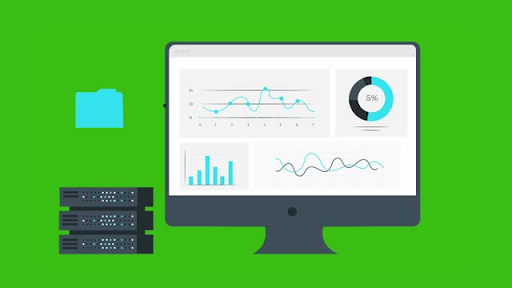
Within the broad field of online advertising, Google PPC Management has become a potent instrument for companies looking to increase their online visibility and generate niche visitors. This post will explore the nuances of being an expert in Google AdWords campaigns, offering insightful advice, techniques, and suggestions for the best outcomes.
Businesses looking for efficient advertising solutions must grasp Google PPC Management in the digital age when there is intense competition for online presence. With Google AdWords, the Pay-Per-Click (PPC) platform, advertisers may bid on keywords and target relevant audiences with their ads.
Overview of Google PPC Management
Online advertisers that use pay-per-click, or PPC, pay a fee each time their ad is clicked. The main component of Google PPC Management, Google AdWords, lets companies advertise on other websites and in Google search engine results. With this approach, advertisers can be confident they only pay when prospective users interact with their material.
Essential Elements of a Winning Advertising Campaign
Creating Eye-Catching Ad Text
Writing compelling advertisement wording is the first step to becoming an expert in Google PPC. Clickthrough rates are higher when the message is well-written and appealing to the intended audience.
Selecting Appropriate Keywords
The choice of keywords is essential to any PPC campaign’s success. Extensive keyword research guarantees that users looking for items or services connected to your business will see your adverts.
Establishing a Smart Budget
Getting the most out of your cash is essential to a successful PPC campaign. Optimizing the targeted exposure’s cost per click (CPC) guarantees effective resource distribution.
Using the Google Ads Interface
Using the easy-to-use Google Ads interface is necessary to set up a Google PPC campaign. This is a step-by-step tutorial to assist you in properly launching your campaign:
Log in to AdWords
Use your Google account to gain access to the Google Ads platform.
Launch a Fresh Campaign
Select the objective of your campaign: leads, sales, or website traffic.
Choose the Campaign Type and Configurations.
Select from Search, Display, Video, or App campaigns depending on your goals.
Identify the People You Want to Reach
For more accurate targeting, include location, interests, and demographics.
Establish a Budget
Establish your bid strategy and daily budget.
Make Ads and Ad Groups
Create eye-catching ad copy and categorize your ads according to relevance.
Select Keywords
Choose appropriate keywords for every ad group.
Examine and begin
Before starting your campaign, double-check your settings.
Getting the Hang of Optimising Ad Campaigns
When your campaign launches, the adventure is far from over. Optimizing and monitoring your campaign continuously is essential to maximizing its efficacy.
Constant observation
Monitor the effectiveness of your campaigns regularly, paying particular attention to the click-through rates (CTR), conversion rates, and total return on investment.
Comparative Evaluation
Try a variety of headlines, ad copy, and image combinations to find what works best.

Tools for Google PPC Management
Google offers the following set of tools to improve campaign optimization and management:
Google Data
Monitor user activity and behavior on your website.
Planner for Google Keywords
Learn about new keywords and the competition and volume of searches.
Editor for Google Ads
Offline editing features simplify campaign administration.
We’ll go into the core of successful campaign management and unearth tactics beyond simple clicks.
Optimization of Landing Pages
An optimized landing page is the first step towards a flawless user experience. Ensuring the content of your landing page matches the ad copy guarantees that users will find exactly what they’re searching for. A visually appealing and intuitive landing page can significantly impact conversion rates, which turns clicks into actionable outcomes.
Monitoring Conversions
Putting in place reliable conversion tracking is essential to figure out how successful your Google PPC ads are. By tracking particular activities, such as form submissions or product purchases, you can determine which keywords and campaigns are really generating value. You may use this data to fine-tune your approach and allocate funds where they will have the most significant impact.
Targeting Geopolitically
Online advertising requires precision, and geo-targeting helps you focus on particular geographic areas. Not only may targeting local consumers improve relevance, but it also guarantees that your budget is used effectively. Geo-targeting can increase foot traffic and local engagement for businesses with physical locations.
Expanding Ads to Increase Visibility
Google Ads has several ad extensions that can greatly increase the visibility of your ad and give prospective buyers more details. Use callouts, structured snippets, and site link extensions to provide extra information about your goods or services. This expands your advertisement’s real estate while improving its aesthetic appeal.
Optimization of Quality Score
Each term in your campaign has a Quality Score that Google assigns depending on several metrics such as landing page experience, click-through rate, and ad relevancy. Better ad placements and reduced cost per click are two benefits of having a higher Quality Score. You can maximize your spending by consistently optimizing your efforts to raise Quality scores.
Conclusion:
In short, Google PPC Management is one of the basic practices to stabilize the outcomes for your business. In this world of continuously changing tactics, Rubbics acts as the best helping hand. You will get all the detailed insights about PPC management with us.
